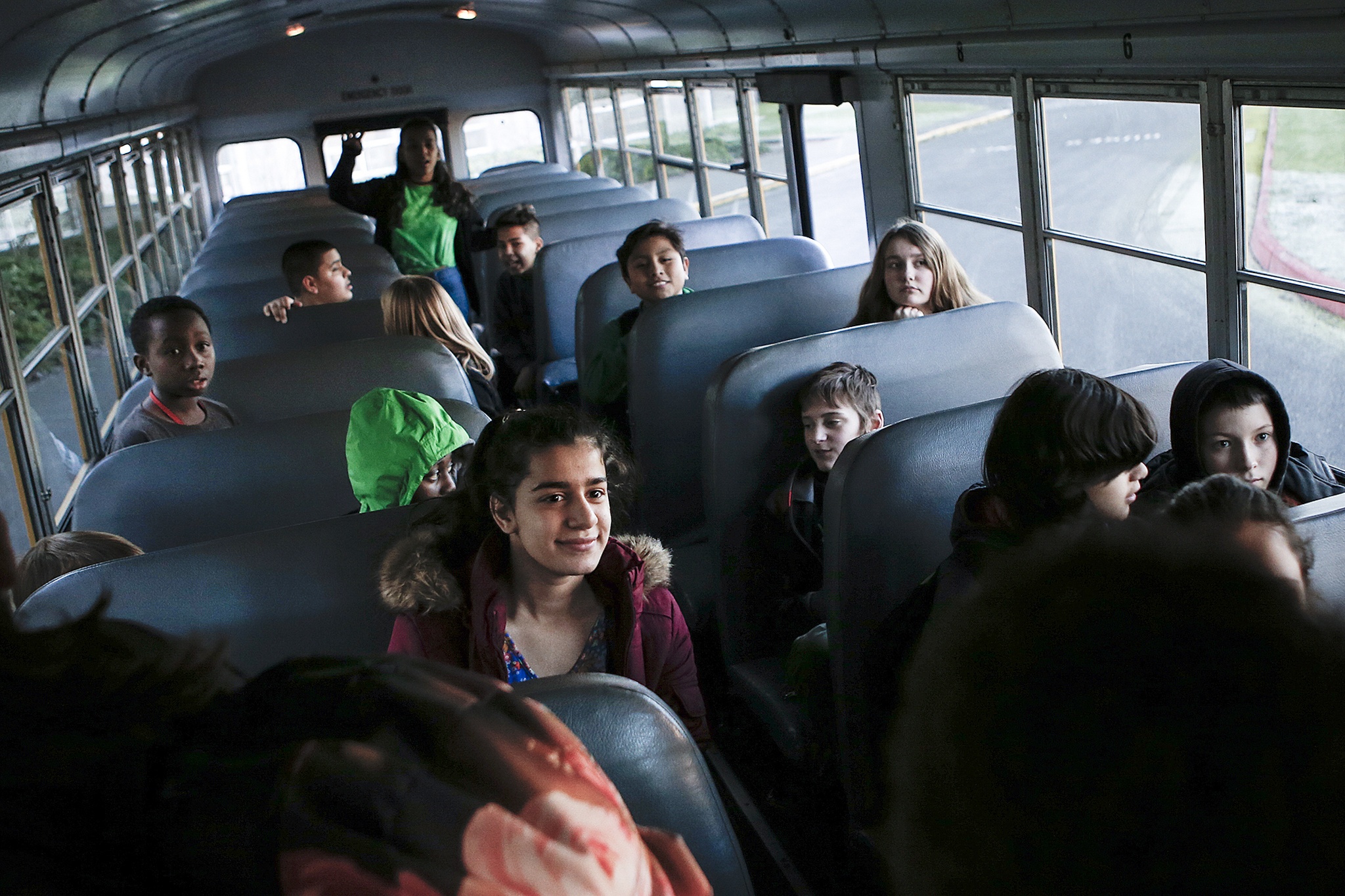EVERETT — About an hour after classes end at Evergreen Middle School, another set of buses rolls up.
The school offers a later round of busing to all students who want to stay for study club.
The idea started more than half a decade ago. It sprang from conversations among students, teachers and administrators. The student council votes every year to devote the majority of its budget to that cause.
As with many programs at this south Everett school, everyone works together to make it happen and make it equitable.
All students need a comfortable and quiet space for homework, studying and catching up on classwork, Assistant Principal Carmen Boggs said. That includes those who rely on the bus to get home because of their family situations or parent work schedules.
“Many of our students need extra help,” she said. “They are coming to us for re-teaching or help on how to do their homework or how to finish their essay.”
The buses are offered four days a week, because Friday is a short day. One bus fits about 60 kids, and a second bus often is needed.
Many of the teachers take turns volunteering that extra hour after their work day, Boggs said. The school library remains open, and there’s dedicated staffing during that time for students who are in special education or learning English.
The student council’s annual fundraiser just wrapped up. The children earned about $45,000 by selling cookie dough and magazines. Study club buses compete for those funds with dances, assemblies and field trips.
The same buses also are used by students in arts, drama and robotics and other clubs. The program is separate from the busing provided after sports practices.
Any student who is failing a class gets a personal invitation to study club, and their parents are reminded about the extra buses. The message is that the child is not alone, and people at school are watching and ready to help, Boggs said.
Attendance and grades are crucial to academic success, and study time is part of that. Many students in study club have improved their grades. Kids who don’t feel frustrated are more likely to stay in school.
Every day of the program, the adults get together and sort out the kids and their addresses. They figure out the routes for the buses.
“This is a very complicated thing just to put together,” Boggs said. “It’s a big, huge thing, but it works.”
Rikki King: 425-339-3449; rking@heraldnet.com. Twitter: @rikkiking.
Talk to us
> Give us your news tips.
> Send us a letter to the editor.
> More Herald contact information.


























